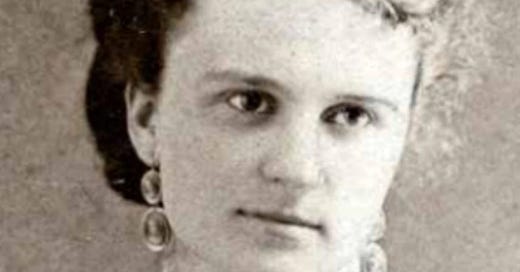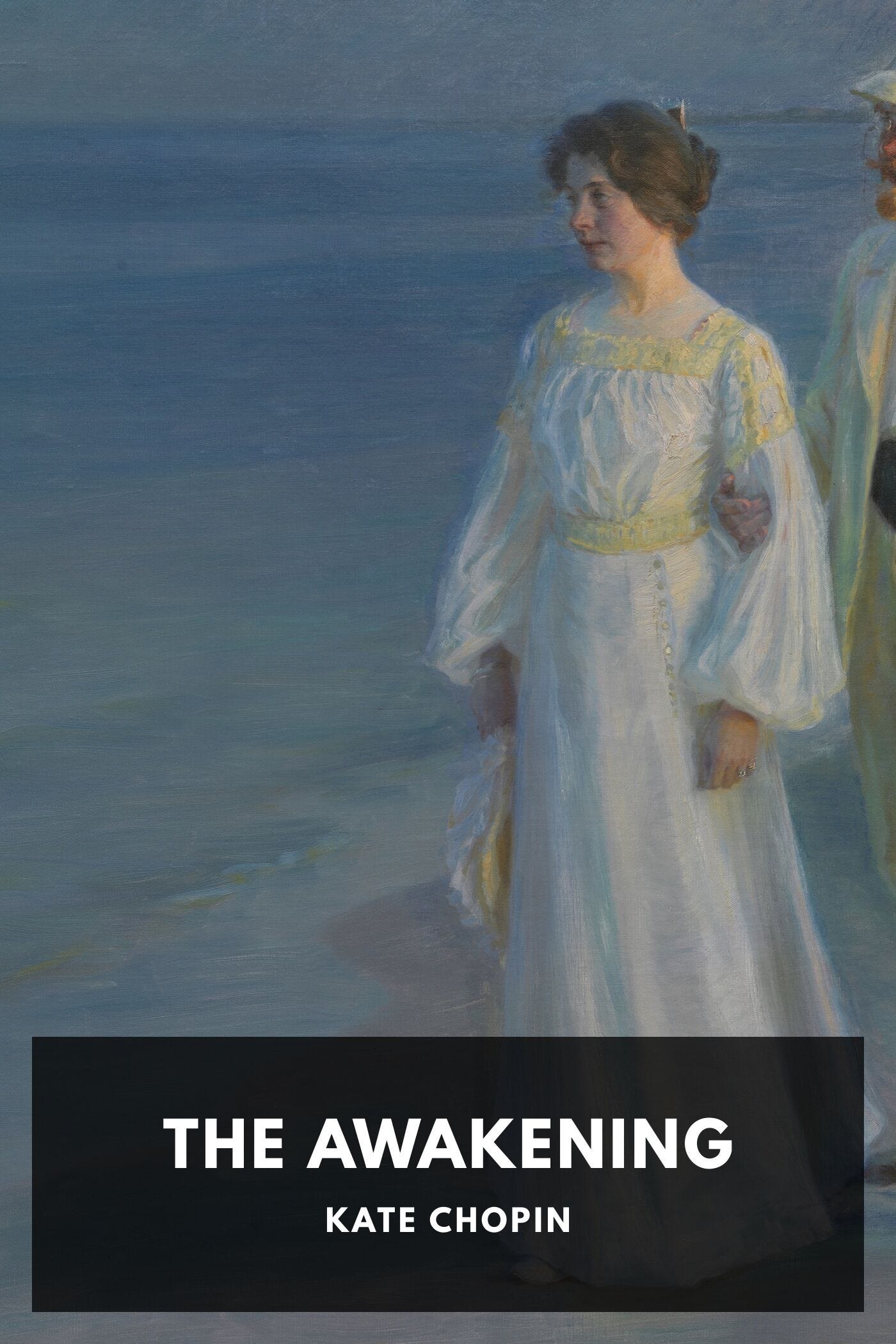Kate Chopin, Seer
"Who can tell what metals the gods use in forging the subtle bond which we call sympathy, which we might as well call love."
This is a line from Kate Chopin's' The Awakening. She has just interrupted a narration of a summer day shared between two women. Chopin loves this two step. She writes of young, middle-class life in Louisiana, and then steps back and calls on the soaring poetry of the composition of man and woman. Chopin puts a sentence that could have come out of Paradise Lost next to a realist observational drama about the small habits and attachments of women that could have come from Penelope Lively. What is so freeing about reading Chopin is how sensual the writing is. The author seems to be smelling the world which she is writing about. At any time she can give voice to the humors and forces that seemed to be working through these middle class people that summer in Louisiana. and at any time she can call attention to the movement of a hand, the placement of an article of clothing, the insecurity betrayed by a look.
“The two women went away one morning to the beach together, arm in arm, under the huge white sunshade. Edna had prevailed on Madame Ratignolle to leave the children behind, though she could not induce her to relinquish a diminutive roll of needlework, which Adele begged to be allowed to slip into the depths of her pocket. In some unaccountable way they had escaped from Robert.”
The Awakening manages to be a novel about a specific society, the American South in the early years of the 1900s. How it manages this is impressive. Through the eyes of this young woman, Edna, we learn how far she can move within the social customs of the time. We see her sexual appetite meet a mans’. We see how they negotiate their love.
All the time we read about this tryst, Chopin comments on it. She is less a Greek Chorus than a 40 year old married woman, fondly reminiscing about the thrilling, messy days of her previous two decades. Because Chopin knows the interior life of Edna so well, we come to know Edna. We also get to know Kate, our author. I have rarely felt as though I knew an author so well after reading a book of theirs. I now know what moments of a romantic encounter Kate Chopin finds most thrilling, what about family gatherings she finds most irritating, and whether she smells freedom or empty, brutal mortality when she looks out at the sea. Chopin puts a little space, negative capability, between her characters and their self-concept. Edna seems afraid that if she ruminates on what she is doing, the thrill of it will wither. And yet Edna does reflect and try to understand herself in little queries. I read and wondered how Chopin thought of her younger, less examined self. Did she pity herself? Or did she wish for the raw, coursing emotion of first and second love to run through her veins again?
Chopin is not an unknown writer. I had never read her in school and only came to the Awakening last year. She is underestimated in the canon, certainly. The Awakening is certainly in a class with the finest novels from Edith Wharton (this book has a lot in common with "Summer"), but do you hear Kate Chopin's name even one fifth as often as Whartons?
Chopin is also underestimated as a stylist. She has both the touch of the memorable phrase and the coherence of project. She gazes at her characters with affection and describes the rooms and grounds they walk on like old, beloved homes. She can also judge them dispassionately and marvel at their capacity to self harm.
The way she describes men in the novel is hilarious and insightful. Here are a couple of sentences.
"Robert talked a good deal about himself. He was very young, and did not know any better." A little later, Chopin says this, "Robert spoke of his intention to go to Mexico...He was always intending to go to Mexico, but some way never got there."
What an un-extraordinary young man, stymied by his own self-promotion, incurious about others! How stuck he is in one place, while talking about travel, as he knows he must look like he is soon to be on the move, exploring the world boldly. He sounds a little like me.
Chopin had a deep insight into the narcissism and silliness of some young men (and, indeed, some old men.) She does not seek to needle them throughout her entire book, but plainly tells us how boring or listless they are with a few sentences, and moves on.
I finished the book and left Chopin’s’ writing but it has not left me. Kate Chopin deserves to never be forgotten in the history of American literature. The strength of her writing demands a higher estimation of her talent and influence.






